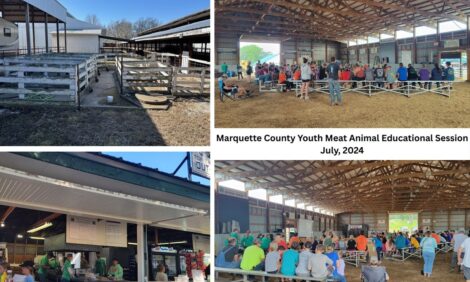



Plea To Ban Foie Gras
UK - Animal welfare group, Four Paws, has carried out an investigation into foie gras production, and are calling for the practice to be banned and for supermarkets to stop selling the product.Animal welfare campaigners are demanding a ban on the delicacy foie gras after uncovering evidence of cruelty to ducks and geese, according to Sky News.
Investigations carried out by the charity Four Paws in Hungary and Bulgaria discovered animals suffering from the effects of force-feeding.
Campaigners said the force-fed foie gras often ends up in the UK.
Foie gras, which translates from French as "fat liver", is produced by the artificial fattening of the birds' livers. It is hugely popular in countries like France.
While production is banned in most of Europe, Hungary is the biggest producer on the continent and foie gras is a protected part of the country's heritage.
The birds get fever, they need antibiotics to survive, and then they create this fatty liver.
Four Paws investigators on force-feeding to make foie gras
Four Paws investigators say they have received hundreds of death threats from farmers in Hungary as they have tried to highlight what goes on in foie gras farms.
One told Sky News, "It shows that people who do harm to animals have no problem doing harm to humans as well.
"Just imagine you are stuffed with food immediately, like 13kg of spaghetti in two seconds into your stomach. You will suffer and get disease.
"The birds get fever, they need antibiotics to survive, and then they create this fatty liver.
"It can be compared to an alcoholic, the same sort of diseased liver."
The Hungarian Poultry Association said hundreds of jobs would be lost if foie gras farming was banned.
Tesco sells foie gras in Hungary
Meanwhile, the supermarket Tesco has defended selling foie gras in its Hungarian stores when, like most major UK stores, it refuses to in Britain.
A Tesco spokesman said, "We operate a successful local business in Hungary, responding to the needs and wishes of our customers.
"While we always look to uphold the very important issue of animal welfare, we also need to balance different cultural attitudes - in this case respecting the expectations and values that exist in Hungary," the spokesman told Sky News.








